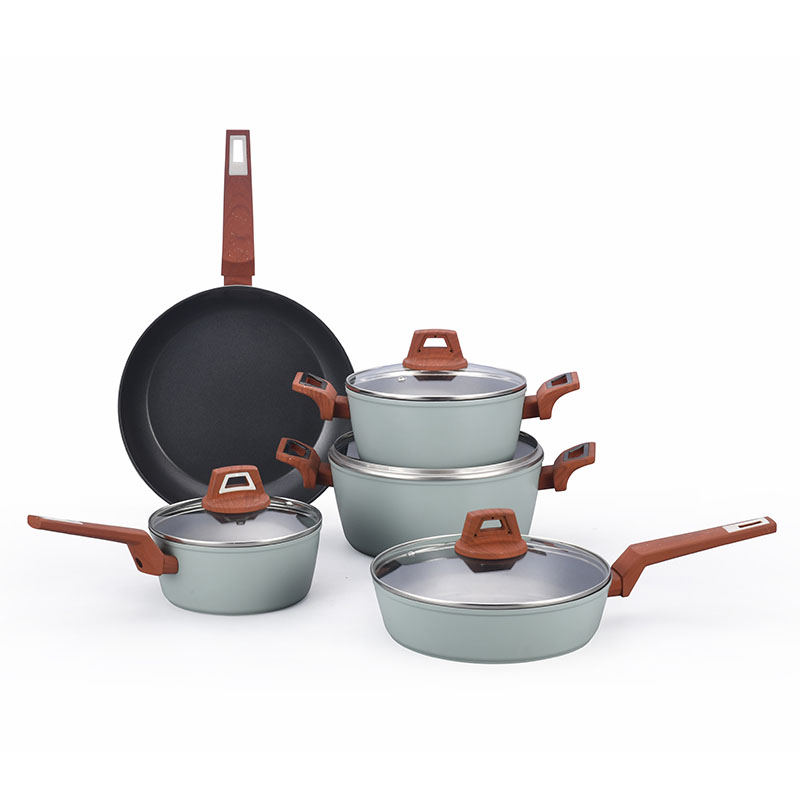In today's pursuit of a light and efficient kitchen experience, aluminum cookware has become the first choice for many families due to its advantages such as fast heat conduction, easy operation and affordable price. However, there is always controversy about whether aluminum cookware is harmful to health. There are rumors on social media that "aluminum pots cause Alzheimer's disease" and "long-term use of aluminum pots will cause poisoning", which has caused consumers to worry.

Aluminum cookware from regular brands on the market is not "pure aluminum", but an alloy of aluminum and other metals (such as magnesium and manganese). Pure aluminum is soft and easy to deform, but after adding a small amount of other metals, its hardness and corrosion resistance are significantly improved, making it more suitable as a cooking material. Modern aluminum cookware mostly uses anodizing technology to form a dense oxide layer on the surface, further improving scratch resistance and acid and alkali resistance.
Aluminum is widely present in nature. The human body consumes about 3-10 mg of aluminum every day through food, drinking water, medicine and other channels. The World Health Organization recommends that adults should not consume more than 2 mg of aluminum per kilogram of body weight per week. Healthy kidneys can effectively excrete most of the aluminum element, and only trace amounts may accumulate in the bones or brain. The link between aluminum and Alzheimer's disease has attracted attention, but the U.S. Food and Drug Administration (FDA), the European Food Safety Authority (EFSA) and other institutions have concluded after a comprehensive review of multiple studies that there is currently no conclusive evidence that daily aluminum exposure causes the disease.
Experiments have shown that aluminum cookware is used to cook neutral foods (such as boiled vegetables), the amount of aluminum precipitation is extremely low (usually less than 0.1 mg/kg of food). The World Health Organization points out that the use of aluminum cookware contributes less than 1% to the total aluminum intake, which is far below the safety threshold. When cooking highly acidic or highly alkaline foods, the surface oxide layer may be destroyed, increasing the amount of aluminum precipitation. When the pot is severely worn, the metal aluminum directly contacts the food, and the risk of migration increases.
Scientifically use non stick aluminum cookware to avoid risks:
1. Avoid cooking acidic foods for a long time: use stainless steel, glass or ceramic containers to handle highly acidic ingredients.
2. Gentle cleaning: Use a soft sponge instead of steel wool to prevent scratching the pot surface.
3. Replace aging pots in time: If there are obvious scratches on the pot or the coating peels off, it is recommended to stop using it.
4. Give priority to coated pots: Aluminum alloy pots with qualified non-stick coatings can effectively isolate aluminum from food.
Aluminum cookware is not a health "killer" and its risks can be effectively controlled through proper use. Instead of blindly panicking, it is better to focus on more specific risk factors, such as cooking fumes, carcinogens produced by high temperatures, or unbalanced dietary structure. Consumers should choose regular products that meet national standards, avoid using inferior and low-priced pots, and follow scientific guidance in daily use.



 Español
Español عربى
عربى

